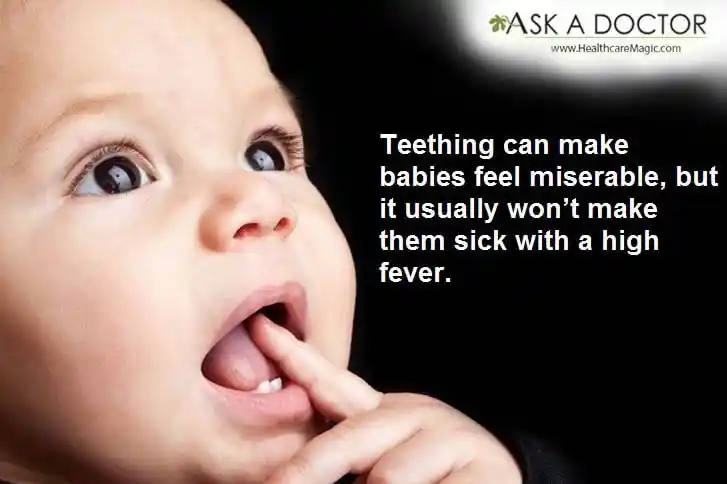Truth Or Myth: Teething In Children Can Cause Fever!
From recurring fever, rashes, diarrhea, and what not, there are a number of problems linked to the teething of your baby! The list of these common beliefs may even outnumber the count of teeth your baby has! But, can teething be blamed for the rise in body’s temperature of a child?
Here's the Fact!

According to American Academics of Pediatrics, "Teething can make babies feel miserable, but it usually won’t make them sick with a high fever". Teething is a normal process that occurs in the early phase of a child’s growth. Normally, it begins at 3 to 6 months and may take up to 2 years for all 20 primary teeth to sprout up. Most of the babies suffer during this time with common discomforts like swollen gums, drooling, crankiness, and decreased appetite, sleeping problems, diarrhea, rash, and vomiting. But, till now researchers and studies have not found any association between teething and rise in body temperature causing high fever over 102°C.
Having said this, in some cases, a mild rise in temperature (below 99 degrees Fahrenheit) can occur. But then again, that’s probably because your child is sick due to restlessness or any other reasons, and not exactly due to teething.
You can help your baby get relief from the pain of their poking gums, by following these tricks:
- Give a gentle massage with your clean finger on to the baby’s sprouting gum
- Handle the baby a teething ring to chew on or a wet, slightly cool washcloth to soothe the pain.
Overall, parents must keep in mind that teething-related complications are not a chronic thing. They come and go. Simply do all you can as a parent to comfort the child.
For any query related to your child health, consult a Pediatrician at www.healthcaremagic.com
Ask a Specialist
Recent Questions


